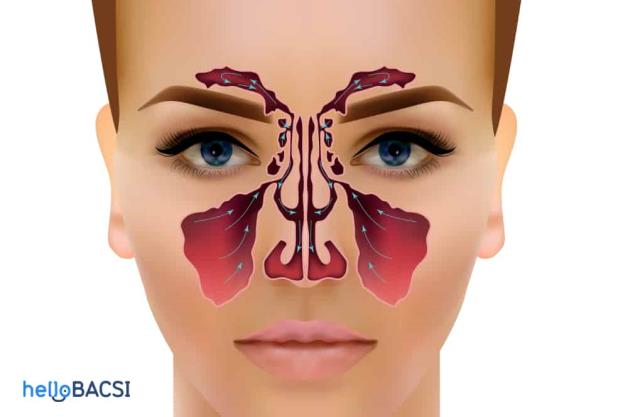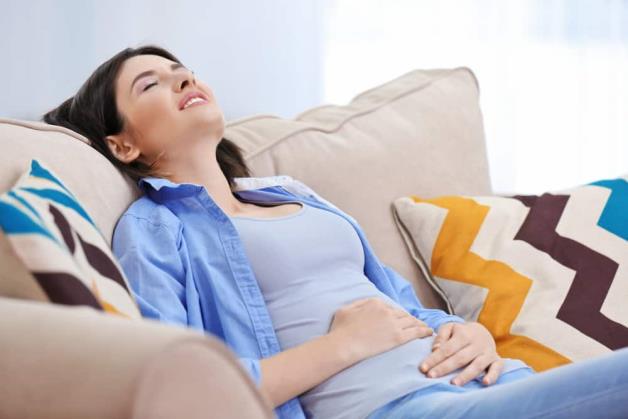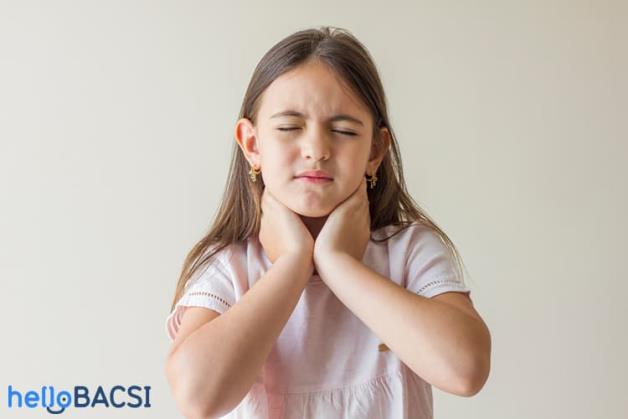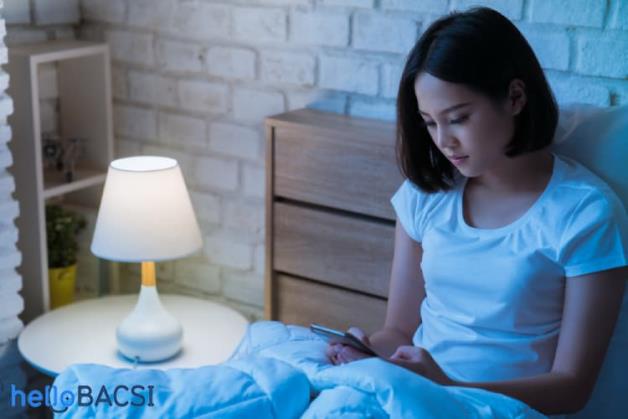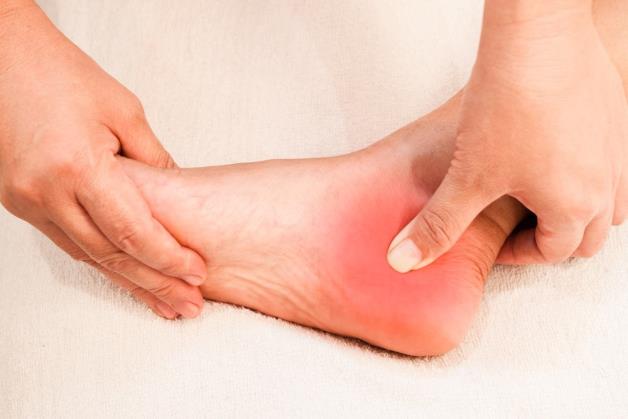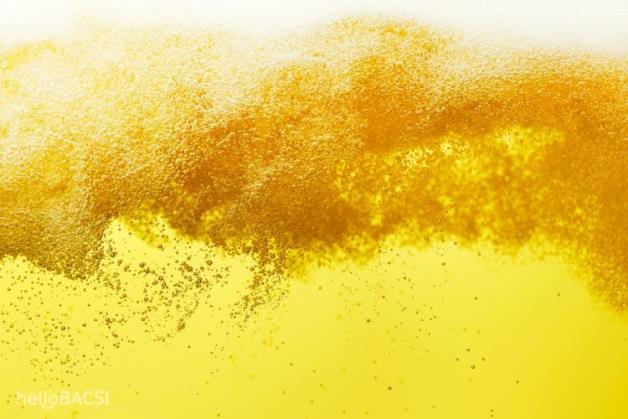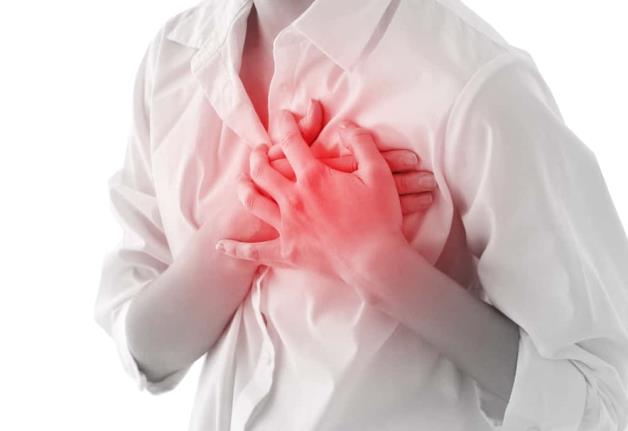Colon pain is not uncommon. This symptom can stem from a minor gastrointestinal problem but can also be a sign of a serious medical condition.
Let's find out the causes and remedies for colon pain in the following article.
Symptoms of bowel pain
The colon (large intestine) is an important part of the digestive system. Food after passing through the stomach will enter the small intestine - where most of the nutrients are absorbed. The waste and remaining food will continue to enter the colon. Here, the body will absorb the remaining fluid, electrolytes and nutrients and then break down food residues into feces to be eliminated from the body.
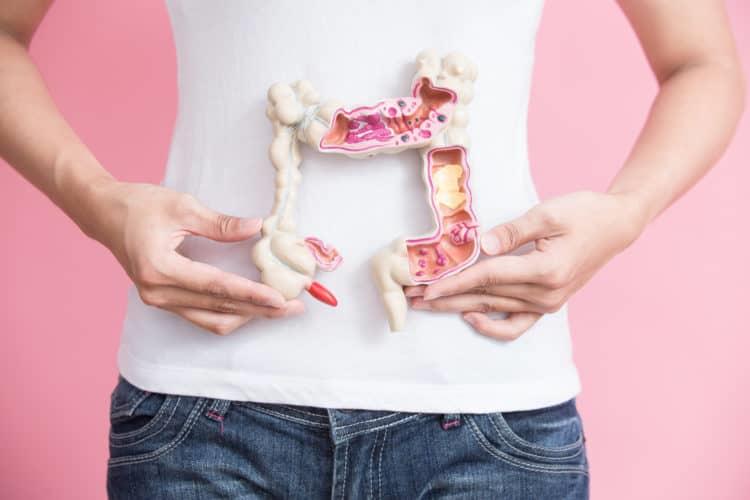
You can have colon pain in many different places. The reason is because this part is composed of many parts and has a folded shape. The colon consists of three main components: the cecum, the colon, and the rectum. In particular, the colon is divided into 4 smaller components including ascending colon, transverse colon, descending colon and sigmoid colon.
In healthy people, the colon contracts to move food and pass stools painlessly. However, certain health conditions can affect and cause colon pain. Example: When the colon is irritated, inflamed, infected, or blocked, it causes strong contractions, resulting in discomfort and pain.
Bowel pain can vary from person to person. Some people experience general abdominal pain, while others experience pain in a specific location. There are also cases where the patient feels pain in the rectal area, just above the anus. In addition, the intensity of the pain also varies from a dull ache to a sharp, stabbing pain.
Causes of colon pain
There are many different causes of colon pain, including:
Constipation
Constipation causes stools that are too large or too hard, making bowel movements more difficult and time-consuming. This condition can cause abdominal pain and pain in the area near the rectum and anus.
Sometimes, constipation can cause tears in the lining of the anus, leading to bleeding and pain during bowel movements.
Gastrointestinal pain due to diarrhea
Rapid contractions caused by diarrhea can cause abdominal cramps, leading to colon pain. Loose stools also irritate the anus, creating a stinging and burning sensation.
If the cause of the diarrhea is a virus or a food intolerance, it usually goes away within a few days. However, if the problem is caused by bacteria or an illness, the diarrhea will last longer and be more severe.
Irritable bowel syndrome
Irritable bowel syndrome (IBS) is a disorder that affects the colon. IBS can cause stomach pain and cramping in the colon, especially during bowel movements.

In addition, irritable bowel syndrome can also cause:
- Flatulence
- Constipation
- Diarrhea
- Stools with mucus
Diverticulitis causes colon pain
Diverticulitis is swelling and redness in the diverticula on the wall of the colon. Diverticulosis occurs when the wall of the colon weakens and bulges out, forming small pouches. In addition to causing pain in or around the colon, diverticulitis causes symptoms such as:
- Loose stools or diarrhea
- Cramping pain in lower abdomen
- Bloody stools
- Fever
- Nausea and vomiting
When you have symptoms of diverticulitis, you should go to the hospital for an examination as soon as possible. In some cases, this condition can lead to serious complications.
Colitis
Colitis is a group of diseases that cause inflammation inside the colon. These diseases include:
- Ulcerative colitis : Ulcerative colitis is a type of inflammatory bowel disease (IBD). Its characteristic condition is chronic colitis, which causes ulcers, bleeding, and oozing of pus in the intestines.
- Crohn's Disease: Crohn's disease is another type of irritable bowel syndrome that affects the entire digestive tract. The inflammation caused by the disease often spreads deep into the layers of intestinal tissue, which can lead to many dangerous complications.
- Infectious colitis: In this condition, bacteria, viruses, or parasites cause irritation and swelling of the colon.
- Ischemic colitis: This condition causes reduced blood flow to the colon, which can cause pain and damage to the colon.
- Radiation colitis: Cancer treatment with radiation therapy can cause colitis.
- Microscopic colitis: This inflammation of the colon is only visible when tissue samples are examined with a microscope. It causes diarrhea but is usually less severe than other causes of inflammation.
Colitis can cause pain in the colon and abdomen. Other symptoms of the disease include:
- Rectal bleeding
- Have an immediate need to have a bowel movement
- Fever
- Weight loss
- Tired
- Nutritional deficiencies
- Stools with blood or mucus
- Diarrhea or constipation
Colon pain due to colorectal cancer
Colorectal cancer is a common cancer with a high mortality rate. More dangerous, the disease often progresses silently and by the time it is detected, it is too late.
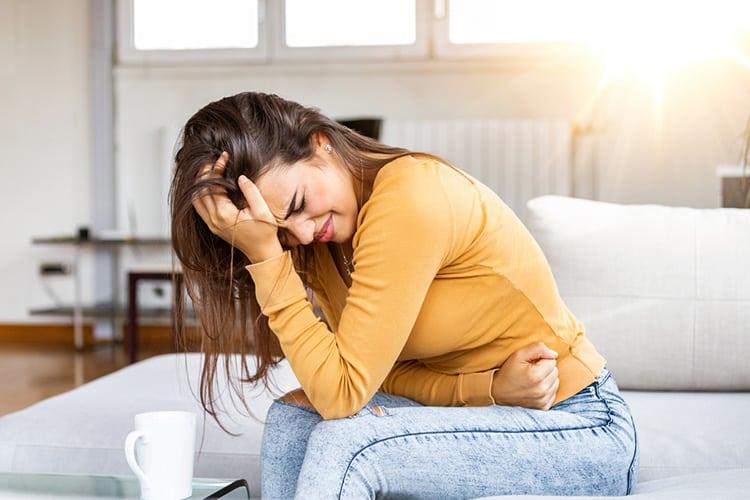
Colorectal cancer can cause abdominal pain near the colon area. In addition, other symptoms of the disease include:
- Constipation or diarrhea
- There is bright red blood in the stool
- Urgent need to defecate
- Dark stools
- Tired
- Weight loss
Diagnosis of pain
Because colon pain can have many causes, your doctor will perform diagnostic tests based on your pain, accompanying symptoms, and medical history.
For mild cases of pain, your doctor may suggest you change your diet accordingly. For more severe cases, the doctor will perform tests to look inside the colon (such as colonoscopy or sigmoidoscopy). Patients may also be asked to have blood tests, stool tests, or CT scans for diagnosis.
Methods to treat colon pain
Chế độ ăn uống mất cân đối, kém vệ sinh sẽ kích hoạt hoặc làm nặng thêm các vấn đề về đường ruột. Trên thực tế, có đến 70% nguy cơ mắc bệnh ung thư đại trực tràng có thể được ngăn chặn thông qua việc thay đổi lối sống.
Điều chỉnh chế độ ăn uống
Việc đầu tiên bạn cần làm để điều trị đau đại tràng là thay đổi chế độ ăn uống. Một số thực phẩm có thể kích hoạt tình trạng viêm và gây đau nhiều hơn, bao gồm thịt đỏ, thực phẩm chiên rán, đường và carb tinh chế, rượu, cà phê… Do đó, bạn nên hạn chế chúng trong bữa ăn hàng ngày.
Bên cạnh đó, bạn cần bổ sung các thực phẩm giàu chất xơ trong khẩu phần ăn của mình. Chất xơ có tác dụng đẩy nhanh quá trình loại bỏ chất thải, giúp giảm chứng táo bón và viêm. Khi cơ thể được cung cấp đủ chất xơ, đại tràng sẽ giảm áp lực lên bụng và tĩnh mạch, giúp phòng tránh được các căn bệnh như:
- Thoát vị bẹn
- Bệnh trĩ
- Suy tĩnh mạch
- Colon cancer
- Fat
- High Blood Pressure
High-fiber foods include grains, vegetables, cauliflower, cabbage, avocado, oranges, apples, nuts, etc.
Towards a healthy lifestyle
Having a healthy lifestyle will help you support the treatment and prevention of many diseases, including colon pain. You need to immediately quit behaviors that adversely affect colon health such as:
- Smoke
- Sitting too much
- Lazy exercise and exercise
Review your current medications
Certain medications can increase inflammation and affect the lining of the intestines. Therefore, you should talk to your doctor to have an alternative option.
Drink a lot of water
You should drink at least 8 glasses of water (2 liters) a day to stay hydrated. Dehydration can make stools hard, make it difficult to have a bowel movement, and increase the risk of constipation.
Exercise regularly, regularly
Constantly facing stress or being inactive can make colon problems worse. Therefore, you should take time to relax and do gentle exercise. A 2009 study found that regular exercise can reduce the risk of diverticulitis in men by up to 37%.

Medical intervention
In the case of severe colon pain due to disease, the patient may need surgery or other medical methods such as intravenous fluids, chemotherapy, radiation therapy to treat the disease.
When do you need to go to the hospital?
If your colon pain persists for more than a few days, it doesn't go away or gets worse, you should go to the hospital right away.
Most cases of colon pain are caused by temporary digestive problems. However, for your peace of mind, you should see your doctor to rule out serious medical conditions like irritable bowel syndrome or colorectal cancer.
Colon pain is not usually a dangerous condition. This symptom may go away on its own after a few days with home remedies. However, if you suspect that your colon pain is related to a medical condition, you should see a doctor to be examined and treated as soon as possible.
